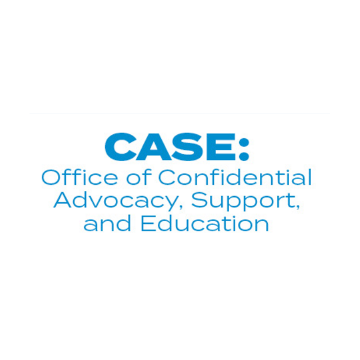Title IX Information
What is Title IX? Why does the University have a Title IX Coordinator?

Understanding Title IX and the University's Commitment to Safety
Title IX of the Education Amendments of 1972 states that:
“No person in the United States, shall, on the basis of sex, be excluded from participation in, be denied the benefits of, or be subjected to discrimination under any education program or activity receiving Federal financial assistance.”
In accordance with Title IX, the University of Mississippi does not discriminate on the basis of sex in the educational programs or activities that it operates, and is required under Title IX not to discriminate in such a manner.
- Sexual harassment, which, under Title IX, includes sexual assault and certain forms of relationship violence, is prohibited under Title IX and the University’s Title IX Policy.
The Role of the Title IX Coordinator and EORC Office
Colleges and universities that receive federal financial assistance are required to designate a University employee to comply with the University’s responsibilities under Title IX, and this individual is referred to as the Title IX Coordinator.
- The University’s Title IX Coordinator is responsible for overseeing the development of sexual misconduct policies, ensuring compliance with Title IX and relevant federal and state regulations, and overseeing investigation and adjudication of formal complaints.
- The Title IX Coordinator is also responsible for coordinating the effective implementation of supportive measures and accommodations, with or without the filing of a formal complaint.
The EORC/Title IX Office is responsible for addressing and responding to allegations of sex-based discrimination, sexual harassment, interpersonal violence, and other sexual misconduct.
- Accordingly, the EORC Office conducts investigations into formal complaints alleging a violation of the University’s Title IX or Interpersonal Violence and Sexual Misconduct Policies, and provides supportive measures and accommodations to parties, with or without the filing of a formal complaint.
For more information, please review the University’s Title IX Policy.
To learn more about Title IX of the Education Amendments of 1972 and the University of Mississippi’s obligations, visit the Office for Civil Rights.
Want to file a report or a formal complaint of sex-discrimination, sexual harassment, interpersonal violence, or sexual miconduct?
Those looking to file a report or formal complaint should contact:
Interim Title IX Coordinator
Marissa Watson
Office for Civil Rights
U.S. Department of Education
Pardon our work
Meet Our Interim Title IX Coordinator
I’m here to answer any questions, address your concerns, and file complaints and reports regarding Title IX matters. Your safety and well-being are my top priorities, so don’t hesitate to reach out for assistance.
Marissa Watson
Title IX Investigator/Trainer
Policies
-
Non-Discrimination and Sexual Harassment Policy and Complaint Procedure
This policy explains the process for filing complaints related to unlawful discrimination or harassment based on various factors, including race, gender, sexual orientation, religion, national origin, and disability. The policy ensures compliance with federal and state laws and applies to all members of the university community, with specific procedures for faculty and staff and separate policies for student-related cases. If you believe you have experienced discrimination or harassment, there are resources available for seeking assistance.
Non-Discrimination and Sexual Harassment Policy and Complaint Procedure -
Title IX Policy
The University of Mississippi’s Title IX policy outlines protections against sex-based discrimination, sexual harassment, and sexual misconduct within educational programs and activities. This policy applies to all genders and aligns with federal and state laws, including Title IX, the Violence Against Women Act, and the Clery Act. It provides guidelines for addressing complaints through fair and impartial investigations while ensuring the rights and privacy of all involved parties. Supportive resources are available for students, faculty, and staff who believe they have experienced sex-based discrimination or harassment.
Title IX Policy



